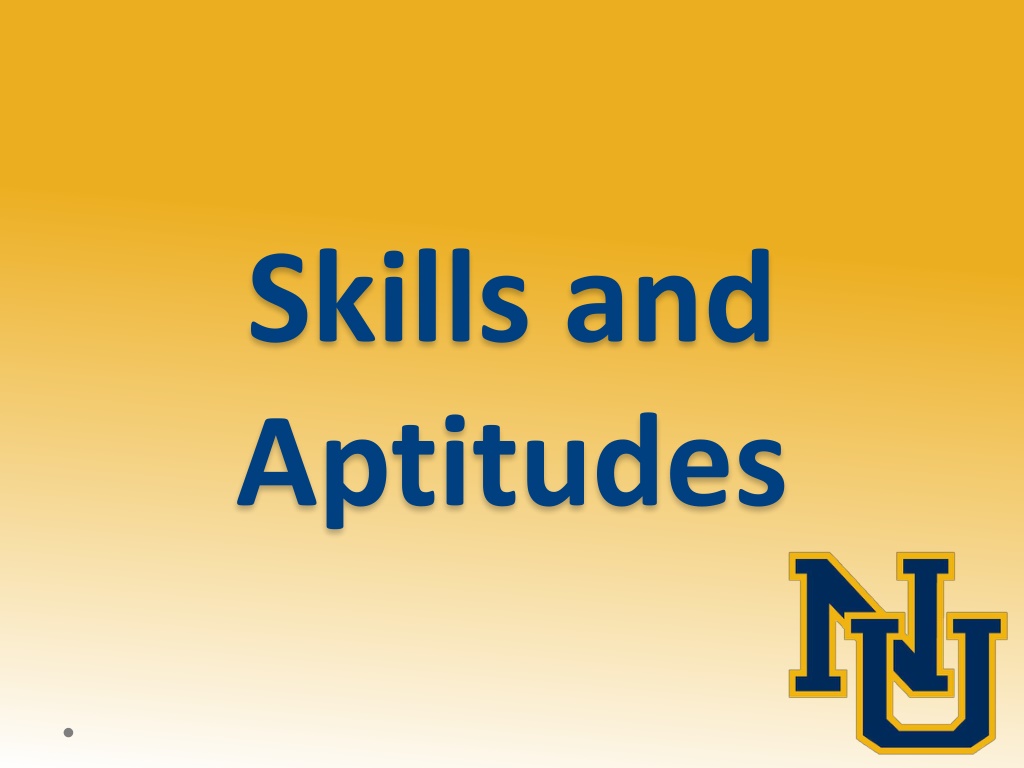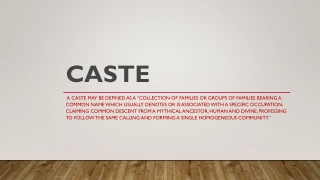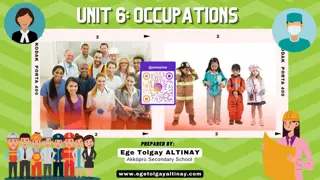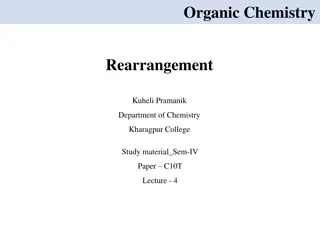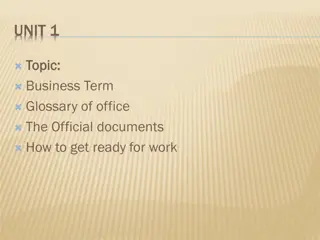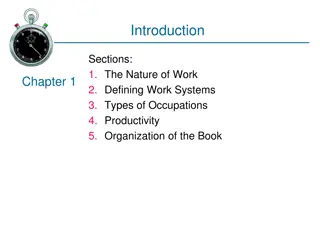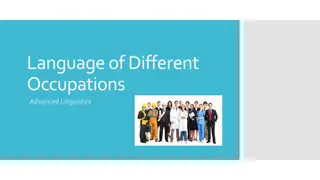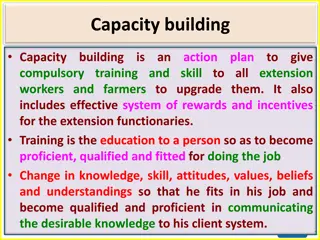Exploring Skills, Aptitudes, and Occupations
Understanding the different skills and aptitudes required for various tasks, such as acting in a school play, can help individuals develop transferable abilities applicable to different situations. From basic skills to resource management skills, exploring the world of occupations and vocations provides insight into roles, employment, and special talents that individuals possess naturally.
Download Presentation

Please find below an Image/Link to download the presentation.
The content on the website is provided AS IS for your information and personal use only. It may not be sold, licensed, or shared on other websites without obtaining consent from the author. Download presentation by click this link. If you encounter any issues during the download, it is possible that the publisher has removed the file from their server.
E N D
Presentation Transcript
Skills and Aptitudes
Often One Task Uses Many Different Skills If James acted in a school play, what skills would be required? Read the play (reading) Interpret the play (critical thinking) Memorize Cooperate with others (teamwork) Project his voice (public speaking) Perform in front of hundreds of people (public speaking) .
Many of These Skills are. . . Transferable: They can be applied to other situations. Example: English class or choir.
Aptitude Something that you have a natural talent for or something that comes easy to you.
Six Categories of Skills Basic Skills Social Skills Complex Problem Solving Skills Technical Skills Systems Skills Resource Management Skills
Occupations and Vocations A role is what you are (son, daughter, sister, brother, friend, etc.) An occupation or vocation refers to what you do. oOccupation is paid employment. oVocation is more like a special skill. (student)
